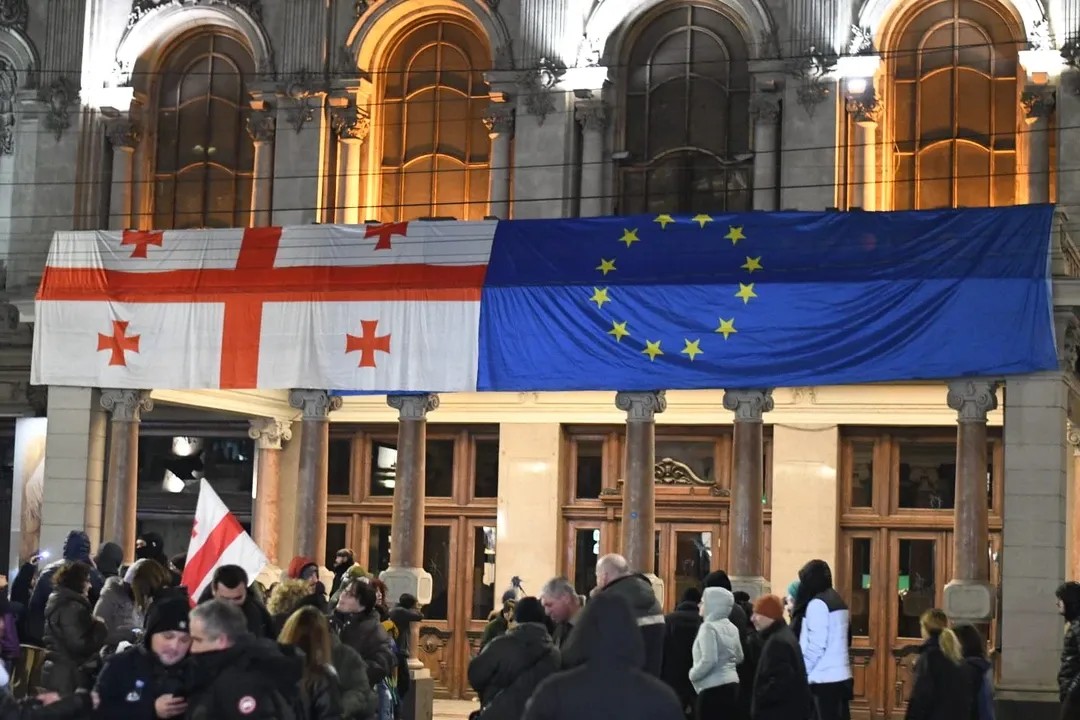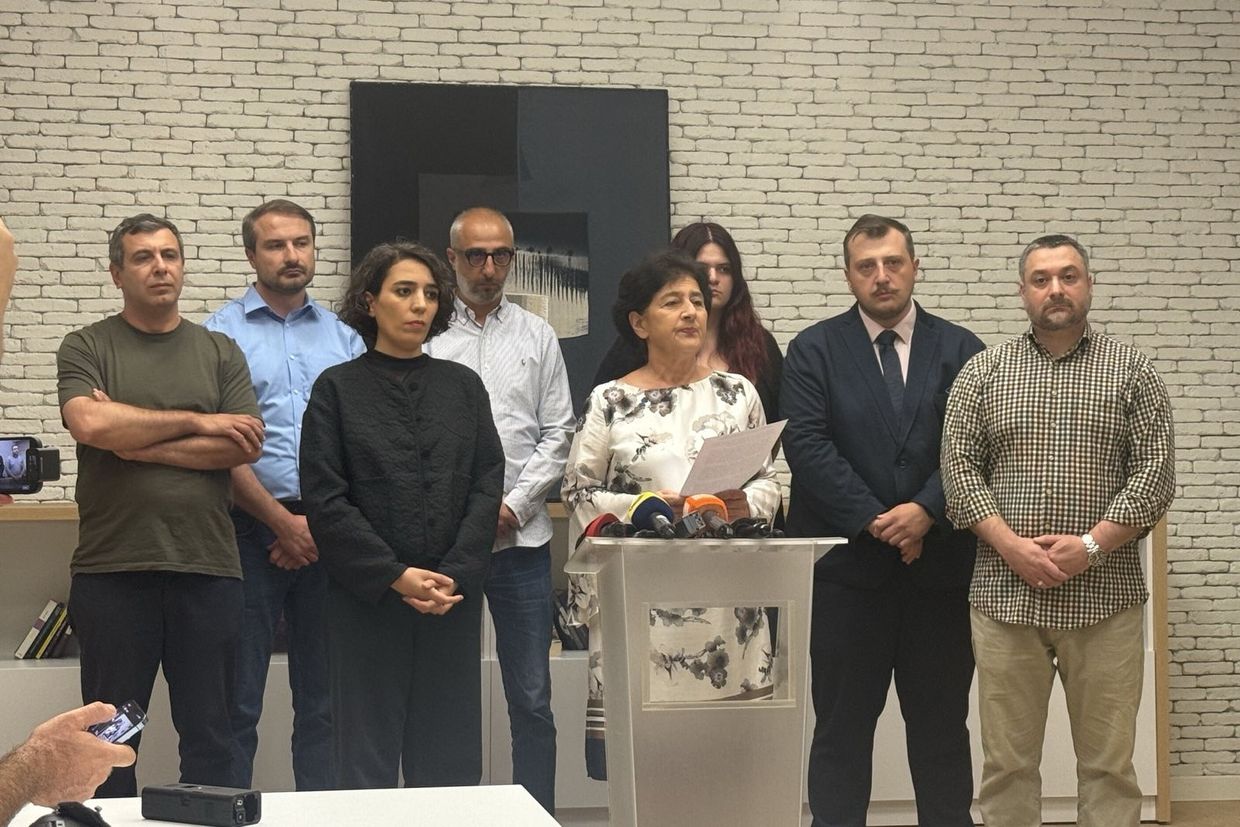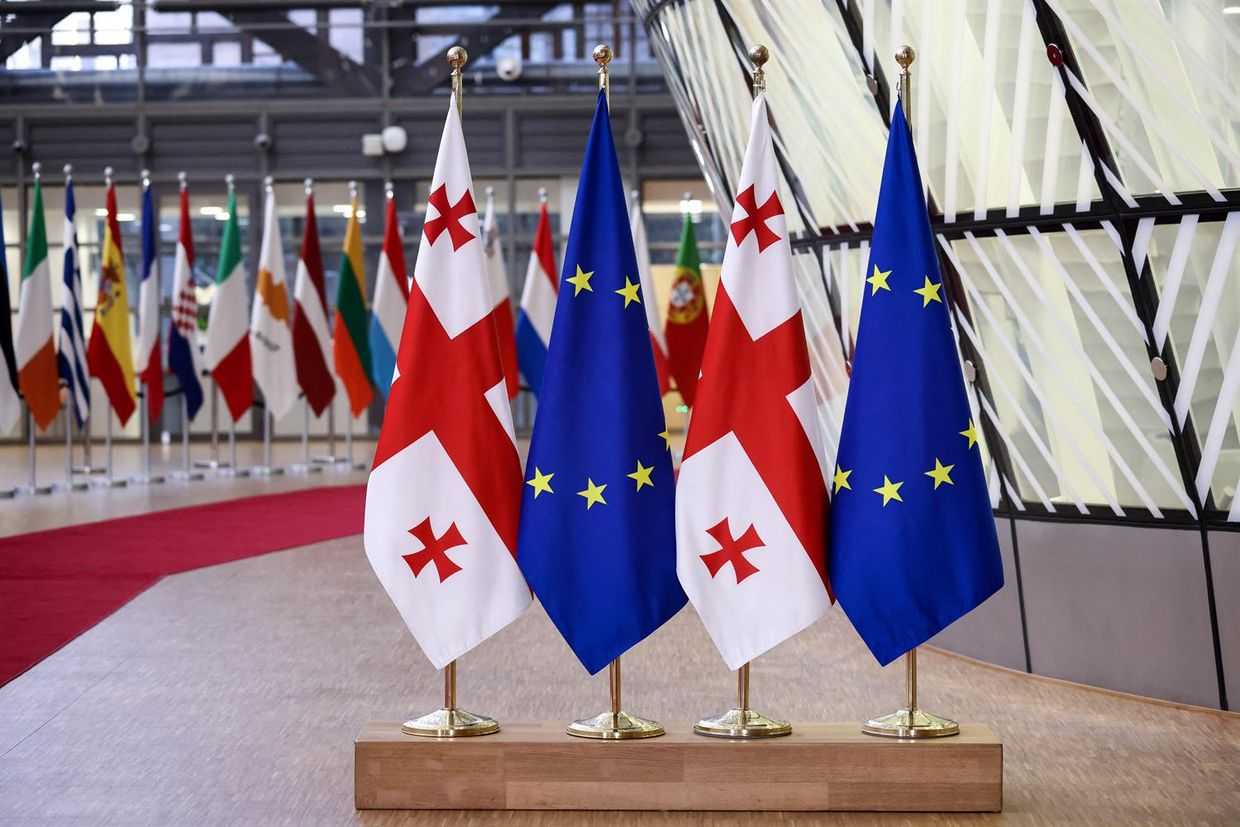Over 50% of Georgians blame Georgian Dream for possible EU visa suspension, survey finds

More than half of Georgians would hold the ruling Georgian Dream party responsible if the visa-free travel with the EU is suspended, an August survey conducted by the Caucasus Research Resource Center (CRRC) in Georgia found. Meanwhile, a solid majority expressed support for the country’s EU integration.
According to results published on Thursday, 51% of respondents held the ruling party and its founder, Bidzina Ivanishvili, responsible for the possible suspension of visa-free travel. On the other hand, 13% percent of respondents believed the EU itself would be responsible, while 5% blamed the Georgian opposition.
Another 24% had no answer.
According to the survey, since 2017, when visa-free travel was introduced, 22% of respondents have traveled to an EU country without a visa, while the rest have not. CRRC noted that the usage rate is higher (33%) among the 18–34 age group. The survey also found that visa-free travel to the EU is more common among residents of the capital Tbilisi and those with higher education.
The survey showed that, regardless of whether they have used it or not, an overwhelming majority — 78% — considered the suspension of visa-free travel to be harmful. Only 3% said it would be beneficial, while 14% believed it would make no difference.
According to the survey, support for Georgia’s European integration remains at a high level — 78% — of which 58% expressed full support and 20% indicated they support it more than they oppose it.
Support is higher among the 18–34 age group, reaching 86%. Among those aged 35–54, support stood at 76%, and among the 55+ age group — 71%.
‘There is virtually no difference in support by gender; however, it is higher among residents of the capital compared to those in the regions’, CRRC said.
The survey was conducted from August 8–12 using computer-assisted telephone interviews (CATI). A total of 1,333 respondents were surveyed, with a margin of error of 1.56%.
Outrage over the potential suspension of the act was triggered by a letter from the EU Commission’s Directorate-General for Migration and Home Affairs addressed to Georgian Foreign Minister Maka Botchorishvili in mid-July.
The letter urged Tbilisi to provide the commission with an update on the implementation of recommendations issued by Brussels in December 2024 by the end of August, and, ‘if not already done, to take appropriate measures to address the issues raised in all commission recommendations’.
The annex to the letter listed eight recommendations, including the protection of fundamental rights of all Georgian citizens and repealing any legislation that may restrict those rights.

According to the letter, the commission will assess Georgia’s compliance with the recommendations in the context of the next visa suspension mechanism report.
‘Based on this assessment, in case of persisting non-compliance, the commission could take appropriate measures on the basis of article 8 of the revised visa regulation, specifically activating the visa suspension mechanism’.
Leaders of the ruling party have denied any responsibility for the possible suspension of visa-free travel, describing the European Commission’s warnings to Georgia as ‘blackmail’.
Government critics have repeatedly noted that following the letter, Georgian Dream not only failed to implement the recommendations, but worsened the situation for democracy, including by seizing the bank accounts of leading civil society organisations on 27 August.
After the deadline passed, Georgia’s Foreign Ministry stated that it had submitted a report to the European Commission within the set timeframe regarding the implementation of recommendations. The contents of the report are not yet known.










